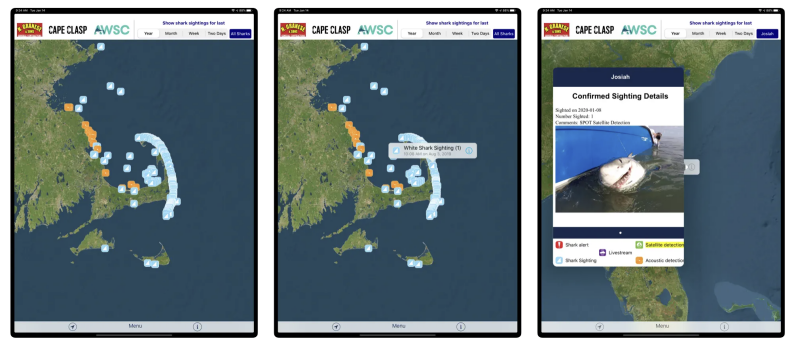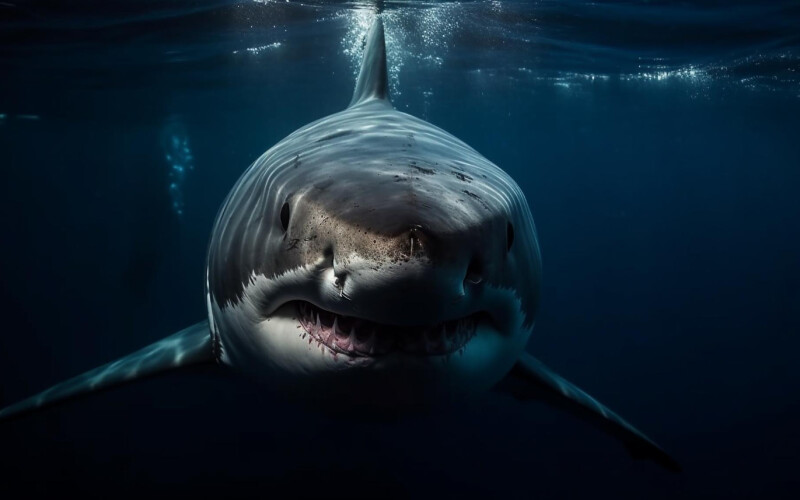National Fisherman Viewpoints- The following op-ed article presents the personal viewpoints of the author and does not necessarily reflect the opinions or positions of the publication, its editors, or its affiliated organizations. The author's perspectives are presented here as a means of fostering open dialogue and diverse discourse on the topic at hand. The publication does not endorse or take responsibility for the accuracy, completeness, or implications of the content within this article. Readers are encouraged to critically engage with the ideas presented and to form their own informed opinions based on a range of sources and perspectives.
As an avid marine enthusiast, my recent experiences during the week-long Shark Week on Discovery and my constant use of the Sharktivity App off the coast of Maine has left me in awe of the world of sharks again. These incredible creatures are not just awe-inspiring predators but also vital components of marine ecosystems, playing a pivotal role in maintaining the delicate balance of oceanic food chains.
Sharks hold a unique position in the marine food web as apex predators. Their presence ensures the regulation of prey species and contributes to biodiversity preservation. By selectively preying on weaker or sick individuals, sharks promote the survival and reproduction of healthier fish populations, which ultimately leads to a thriving marine ecosystem. Additionally, they control mid-level predator populations, preventing them from overexploiting lower-level species.
A significant aspect of their ecological role lies in their scavenging behavior, where they contribute to the cleanup of marine environments by removing dead or dying animals. This vital service not only prevents the spread of disease but also helps maintain the ecosystem's overall health, making sharks indispensable in preserving the balance of marine life and supporting the seafood industry.

However, despite their crucial ecological role, sharks' interactions with commercial fishing have been controversial for decades. As fishermen seek to harvest commercially valuable species, conflicts arise due to sharks preying on these same targets. For instance, along the Atlantic coast, the conservation efforts that have led to an increase in large shark populations have raised concerns among fishermen about their impact on fish stocks such as tuna and swordfish.
Various management strategies have been put in place to address the challenges posed by sharks to commercial fishing. Fishing gear modifications, such as using shark-repelling devices like magnets or electric fields, have been implemented to reduce shark bycatch while still targeting desired species. Additionally, shark exclusion devices (SEDs) have proven effective in allowing sharks to escape unharmed from fishing nets, promoting sustainable fishing practices.
Despite the potential conflicts, sharks also present economic opportunities for fishing industries. The rise of ecotourism centered around shark-watching has become increasingly popular, particularly in coastal regions with diverse shark populations. Tourists are willing to pay for guided boat trips and diving experiences to witness these creatures in their natural habitat, generating revenue for local communities and supporting conservation efforts.
Shark-based products have gained traction in the global market, although not without controversy. Shark fin soup, once considered a delicacy in some cultures, has faced criticism due to unsustainable practices like shark finning (a practice that has been prohibited for years in U.S. waters, where fishermen are required to land sharks whole). The decreasing demand for shark fin products has led to the potential recovery of shark populations, highlighting the delicate balance between cultural preferences and conservation efforts.
Sharks play an irreplaceable role in maintaining the health and balance of marine ecosystems along the coasts. While their presence may pose challenges for commercial fishing, it is crucial to recognize their ecological significance and the potential economic opportunities they offer.
By adopting responsible fishing practices, implementing shark conservation strategies, and promoting sustainable tourism, we can ensure the preservation of these magnificent creatures while supporting the livelihoods of fishing communities. It is through a well-balanced approach that we can achieve a win-win situation where the marine ecosystem thrives, and both sharks and fishermen coexist.







